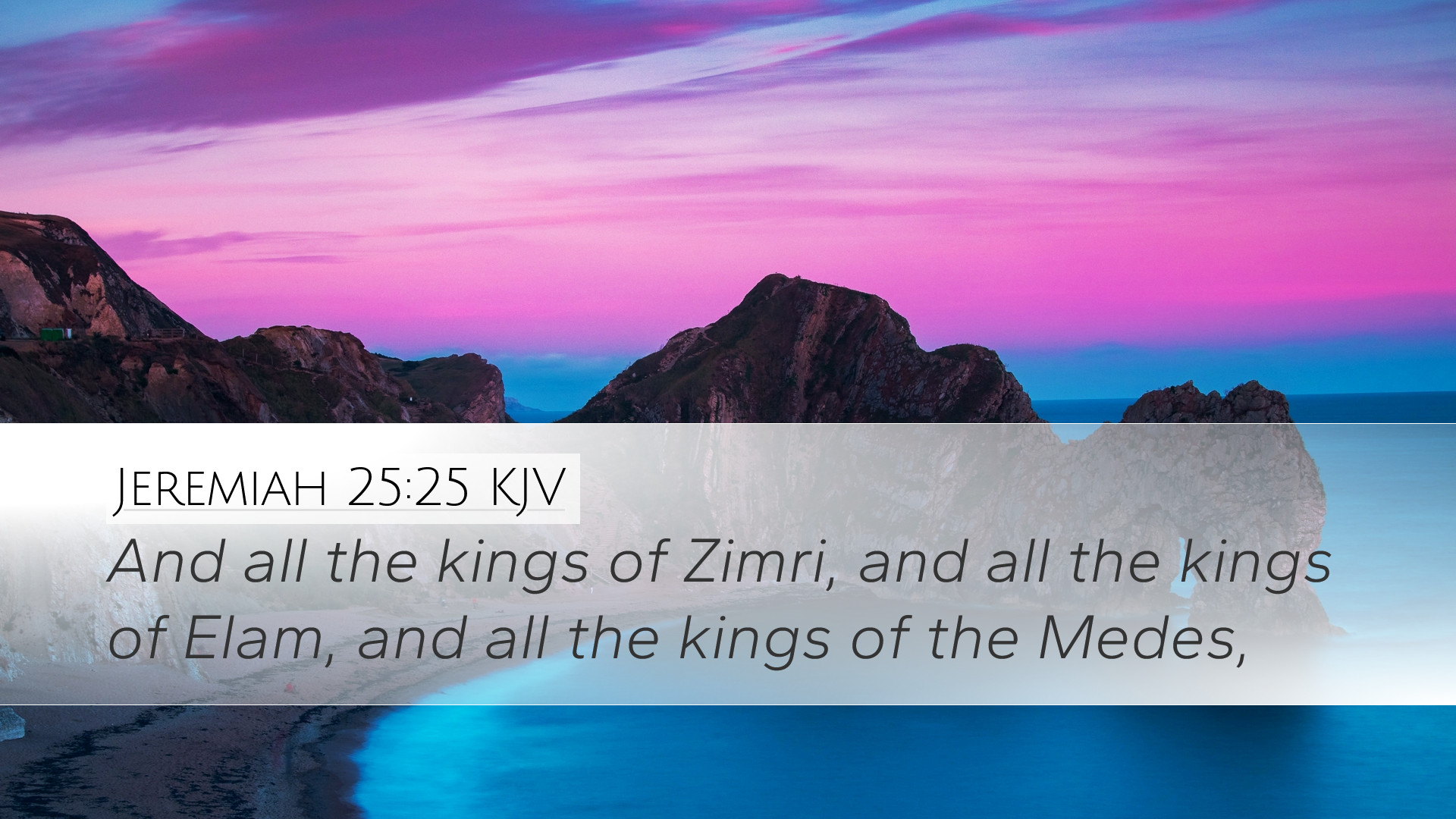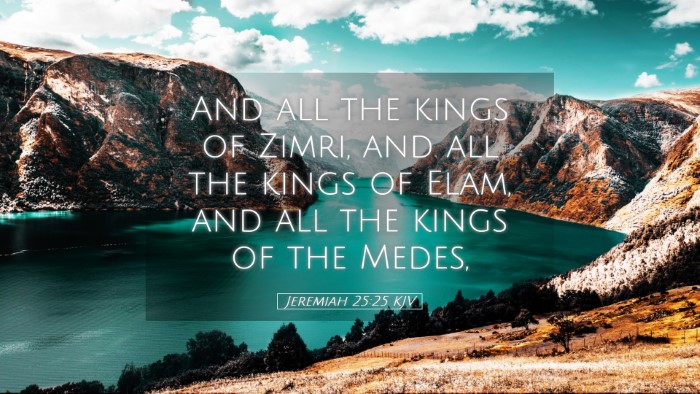Commentary on Jeremiah 25:25
Jeremiah 25:25 states:
“And all the kings of Zidon, and all the kings of Tyre, and all the kings of the isles which are beyond the sea.”
Contextual Background
This verse falls within a broader proclamation by the prophet Jeremiah concerning the judgment of nations. It describes the impending doom that awaits not only Jerusalem but also surrounding nations, emphasizing God's sovereignty over all rulers and empires.
Verse Analysis
To better understand Jeremiah 25:25, we can draw insights from notable public domain commentaries:
Insights from Matthew Henry
Universal Judgment: Henry emphasizes that the judgment of God is not localized but extends to all nations and kingdoms. The mention of the kings of Zidon and Tyre, significant city-states known for their wealth and commerce, reflects the comprehensive nature of God's judgment.
Idolatry’s Consequence: Henry points out that both Zidon and Tyre were notorious for their idolatrous practices. This serves as a reminder that nations that forsake God for idols will ultimately face His wrath. Though they enjoyed prosperity, their downfall would be assured due to their sinful ways.
Thoughts from Albert Barnes
The Kings of Tyre and Zidon: Barnes notes that Tyre and Zidon were leading maritime nations of the ancient world, well-known for their trade and influence. However, he warns that even the mightiest will not escape God’s judgment.
Expanded Meaning: The mention of "the isles which are beyond the sea" suggests a more extensive judgment over distant nations that were previously thought unaffected by the prophetic word. Barnes emphasizes the universality of God's governance and accountability.
Reflections from Adam Clarke
Historical Context: Clarke provides a historical understanding of the geopolitical landscape during Jeremiah's time. He mentions that both Tyre and Zidon held significant power, and their alliance against Israel represented a direct challenge to God's authority.
Distant Isles and Nations: Clarke further explains that the reference to isles extends the prophecy's reach, implicating distant lands known for their rebellion against God. The prophetic warning calls leaders in these territories to consider their standing before God.
Theological Implications
This verse invites both pastors and theologians to reflect on themes of divine justice and the moral obligations of nations before God. The judgment upon Tyre and Zidon stands as a testament to God's impartiality; no nation, regardless of its power or distance, is exempt from divine scrutiny.
God’s Sovereignty: The overarching theme of God’s sovereignty is emphasized. His dominion encompasses all political structures and leaders, from the most powerful kings to the smallest of territories.
Call to Righteous Leadership: For contemporary application, this scripture serves as a call to leaders to govern with righteousness and integrity, aware of their accountability to God. Pastors can utilize this as a basis for sermons on civic responsibility and the implications of leadership under God’s authority.
Practical Applications
- Reflection on Idolatry: Congregations should examine what modern “idols” they may be upholding that distract from true worship of God.
- Recognition of Global Accountability: Believers must understand that the Gospel message transcends national boundaries and that all nations are accountable to God.
- Encouragement to Pray for Leaders: This verse can inspire prayer for leaders in all nations, acknowledging that their guidance can lead nations toward righteousness or away from God.
Conclusion
Jeremiah 25:25 serves as both a warning and an encouragement. It calls upon leaders and nations to recognize the sovereignty and justice of God in their governance and practices. The insights garnered from established commentaries can enrich our understanding and application of this pivotal verse, reminding us that the God who judges the mightiest of kings is equally invested in the lives of the humble and faithful.


